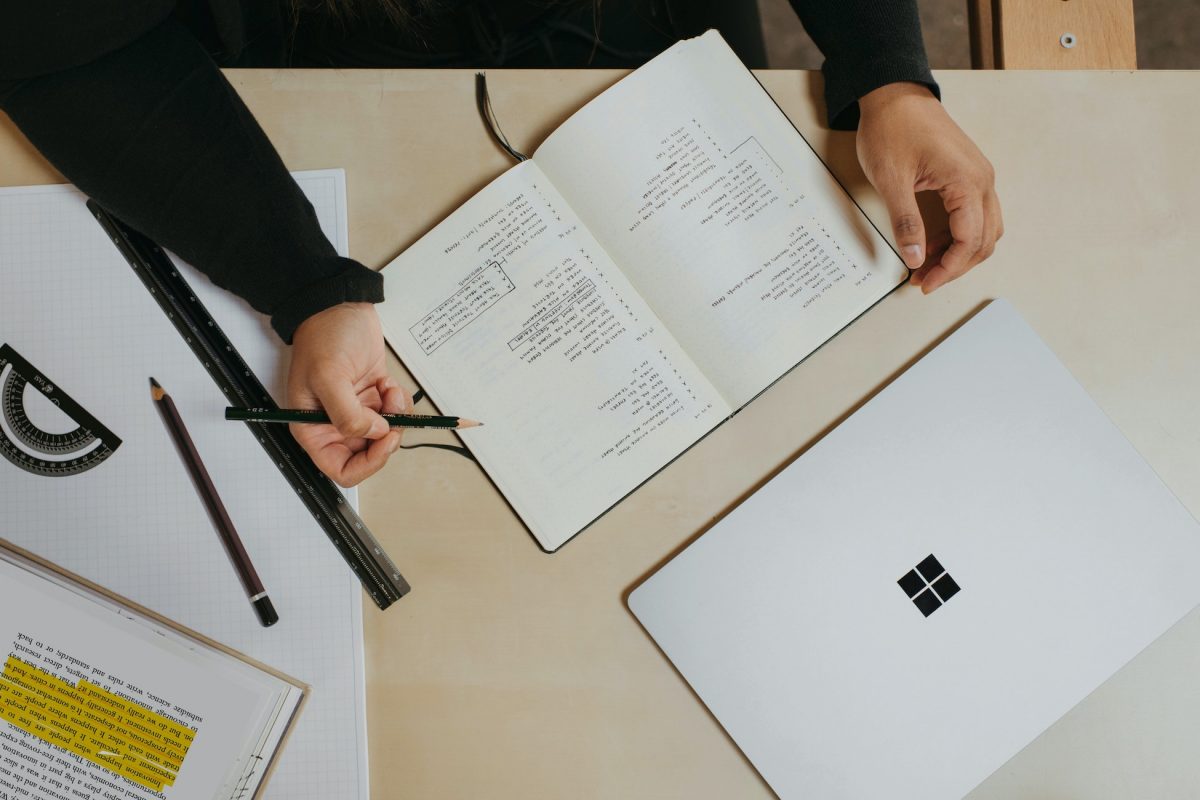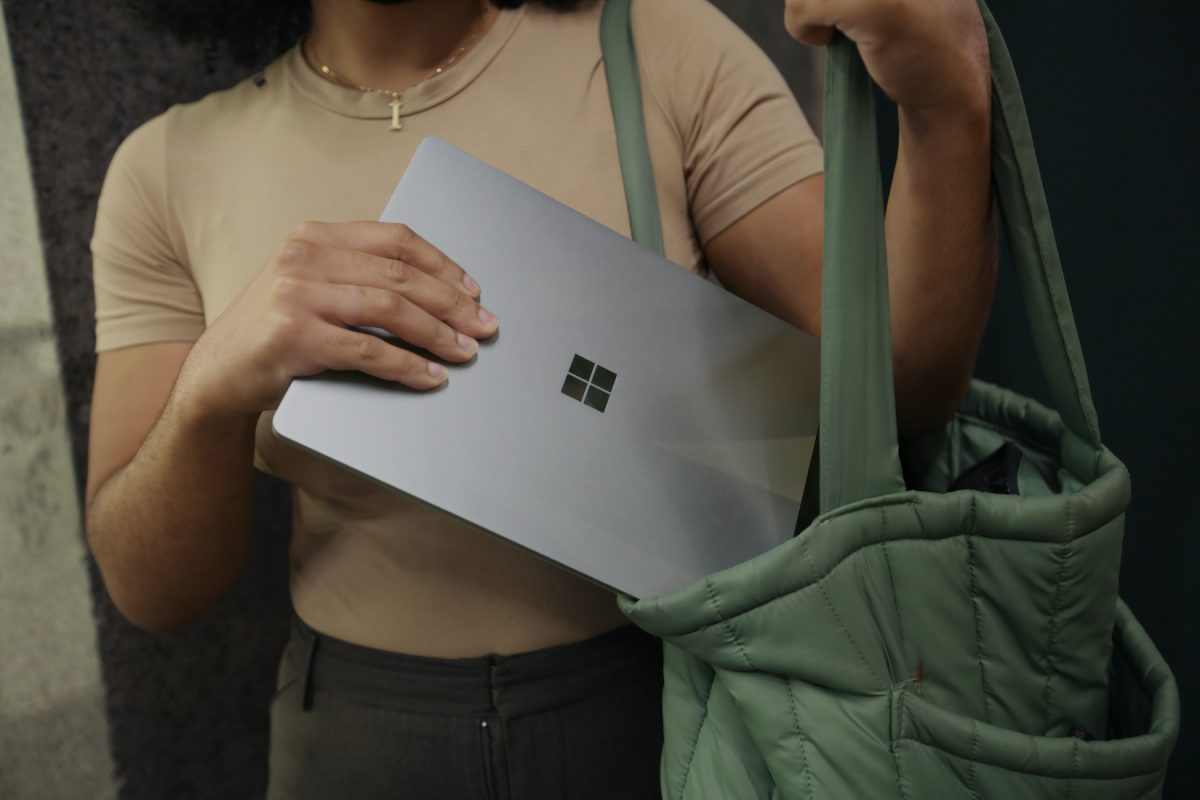Ready to level up your money game? Welcome to the ultimate guide on the Junior Stocks & Shares ISA—a financial adventure designed for the savvy millennial and Gen Z crowd looking to secure a bright future without the boring jargon. Imagine combining a savvy investment strategy with benefits that put your hard-earned cash to work even when you’re busy binge-watching your favorite shows. In this guide, we break down the benefits, fees, rates, and everything you need to know, all with a side of humor and a down-to-earth vibe that makes saving and investing as relatable as your latest meme.
Junior Stocks & Shares ISA: Benefits, Fees, Rates & Information Table of Contents
The Nitty-Gritty of Fees and Charges
Understanding the Rates and Potential Returns
The Risks and Rewards: Balancing Act for Future Success
Tips for Millennials and Gen Z: Making the Most of Early Investing
Resources and Community Support: Your Next Steps
Stories of Success: Real-Life Transformations Through Early Investing
Building a Financial Legacy: The Long-Term Impact of Early Investments
Your Journey to Financial Empowerment and a Brighter Tomorrow
What is a Junior Stocks & Shares ISA?
A Junior Stocks & Shares ISA is a tax-efficient investment account designed specifically for children under 18, allowing parents, guardians, or family members to invest on their behalf. It’s like setting up a financial playground where young money can grow and flourish, free from the heavy tax burdens that normally sneak up on your hard-earned cash. The ISA (Individual Savings Account) framework means that all the growth within the account is free from capital gains tax and income tax—a win for anyone who dreams of making that rainy day fund more like a sunshine reservoir.
Unlike a regular savings account where you watch your money earn minimal interest, a Stocks & Shares ISA invests in a portfolio of assets—from stocks and bonds to exchange-traded funds (ETFs). This diversification helps boost potential returns. And while the idea of stocks might sound scarier than a horror movie, think of it as enrolling your child in a world-class digital academy where their money learns the skills to multiply over time.
By starting early with a Junior Stocks & Shares ISA, parents and guardians give children a head start on their financial education—and potential wealth—while simultaneously teaching them the basics of saving and investing. It’s like planting a money tree that grows and blossoms over decades, setting the stage for future financial independence.
The Key Benefits of a Junior Stocks & Shares ISA
When it comes to boosting your child’s financial future, the Junior Stocks & Shares ISA packs a punch with a host of benefits that appeal to both cautious savers and risk-loving adventurers (or their parents). Let’s dive into the top perks:
Tax-Free Growth and Withdrawals
One of the biggest draws of a Junior Stocks & Shares ISA is that any gains—whether from capital appreciations or dividends—are entirely tax-free. That means every bit of profit contributes directly to your child’s future, much like getting extra toppings on your favorite pizza without any additional cost.
Long-Term Investment Potential
With the power of compounding on your side, starting an ISA early allows your investment to grow exponentially over time. Even if there are some bumps in the road, the long-term horizon typically smooths out market volatility. Consider it the financial version of a slow cooker—patience will yield a delicious outcome.
Flexibility and Choice
Junior Stocks & Shares ISAs typically offer a range of investment options, allowing you to tailor the account to match your child’s risk profile and the family’s long-term goals. Whether you’re a cautious investor or a risk-taker looking to ride the market waves, you can choose products that suit your comfort level.
Financial Education and Early Exposure
Opening a Junior Stocks & Shares ISA is not just about making money—it’s also an educational tool. As your child grows, they can learn about the ups and downs of investing, the importance of diversification, and the magic of compound interest. It’s like giving them a sneak peek into the world of finance, setting them up for success in adulthood.
Encouraging Long-Term Savings
Since the funds in the ISA are locked away until your child turns 18, it teaches the value of long-term savings and delayed gratification. Just imagine all the extra extra-curricular opportunities that could become possible when the money finally matures—a college fund, a first home deposit, or that dream entrepreneurial venture.
The Nitty-Gritty of Fees and Charges
Let’s talk money—and not just the money you invest, but the money you sometimes don’t see in your account because of fees. While fees might not be the rockstar aspect of a Junior Stocks & Shares ISA, they’re important to understand so you can make an informed decision. Here’s a breakdown of the common fee structures:
Platform Fees
Most ISA providers charge an annual platform fee for managing the account. These fees are typically a percentage of your total investment and cover administrative costs, customer service, and access to the platform’s features. While it may seem like a drag, consider it the price for having a digital assistant that helps manage your child’s investments.
Fund Management Fees
If your Junior ISA holds managed funds, there might also be fund management fees. These are charged by the fund managers and are usually deducted from the fund returns before they hit your ISA. It’s like the tip you pay at a restaurant—small but essential for top-notch service.
Dealing Charges and Transaction Costs
Some providers might levy charges when you buy or sell investments. However, many platforms offer commission-free trading to attract younger investors. It’s important to read the fine print so you’re not caught off guard by hidden costs that chip away at your returns.
Comparison of Fee Structures
With numerous providers in the market, comparing fee structures is key. Some platforms boast zero dealing fees but charge higher annual platform fees, while others have the opposite approach. Do your homework—like you would for a new pair of sneakers—and choose one that aligns with your investment horizon and expected returns.
Understanding the Rates and Potential Returns
When you peek into a Junior Stocks & Shares ISA, the rates and potential returns might seem as mysterious as the crypto market at midnight. But fear not! Here’s a straightforward breakdown:
Historical Returns and Future Outlook
Stocks & Shares ISAs have historically delivered attractive long-term returns compared to regular savings accounts. While past performance doesn’t guarantee future results, history shows that diversified portfolios tend to produce healthy growth over extended periods. Think of it as a marathon—slow and steady sometimes wins the race.
Volatility and Risk
Investing in the stock market naturally involves some degree of volatility. The short-term ups and downs might rattle your nerves (and possibly your favorite meme collection), but over a long-term horizon, the market tends to bounce back. It’s essential to balance risk with a diversified strategy that aligns with your child’s future goals.
Benchmarking Against Other Savings Options
When compared to traditional savings accounts, which offer excruciatingly low interest rates, a Stocks & Shares ISA can provide a significant advantage. By investing in a mix of assets, your money isn’t just sitting idle—it’s hustling in the market to grow over time. That said, the higher potential returns come with increased risk, so it’s crucial to find that sweet spot tailored to your family’s comfort level.
Impact of Market Trends and Economic Conditions
The performance of your Junior ISA will be influenced by a variety of market forces including economic cycles, interest rates, and global events. While these factors can seem like complex obstacles, think of them as challenges that seasoned investors learn to navigate. With patience, balanced diversifications, and a long-term perspective, your child’s ISA can thrive even in unpredictable conditions.
How to Set Up a Junior Stocks & Shares ISA
Getting started with a Junior Stocks & Shares ISA is easier than assembling a flat-pack bookshelf—unless you’re missing that one vital Allen key. Here are the steps to set up an account and kick off your child’s financial journey:
Step 1: Research Your Options
Before jumping in, it’s crucial to compare various providers. Focus on factors like fee structures, available investment options, customer service, and the user interface of the platform. A little research now saves you headaches (and extra expenses) later.
Step 2: Gather the Necessary Information
To open the account, you’ll need essential details such as your child’s National Insurance number, proof of identity, and possibly your own identification as the account custodian. It’s the financial equivalent of gathering materials for a DIY project.
Step 3: Complete the Application Process
Once you’ve selected a provider, follow their online prompts to fill in all the required information. Most platforms have a user-friendly process that walks you through each step—so don’t worry if you’re not a tech wizard.
Step 4: Choose Your Investment Strategy
After setting up the account, decide on an investment strategy that matches your risk appetite and long-term goals. Whether you opt for a managed fund, a DIY approach with individual stocks, or a mix of both, make sure it’s something you can stick with over the years.
Step 5: Fund the Account
Finally, transfer the funds into the ISA. Some providers offer regular contribution plans, which can turn investing into a stress-free, automated habit. Think of it as subscribing to your favorite streaming service—except the content is your child’s future prosperity.
The Risks and Rewards: Balancing Act for Future Success
As with any investment, a Junior Stocks & Shares ISA comes with both risks and rewards. It’s all about managing the scales and understanding that no financial decision is completely free of uncertainty.
Understanding Market Risks
Market fluctuations and economic downturns can affect the value of investments. You might experience periods where your portfolio takes a dip—a temporary setback that, in the long run, can lead to stronger gains once the market recovers. It’s similar to that awkward phase during your teenage years; it might be bumpy, but it shapes you into a resilient adult.
The Reward of Early Investing
One of the best rewards of starting early is harnessing the power of compounding. Even modest contributions can grow significantly over time as interest compounds on top of interest. It’s like putting your money on a treadmill that just keeps speeding up over the years.
Diversification as a Safety Net
Diversification is your best friend when it comes to balancing risk and reward. By spreading investments across various asset classes—stocks, bonds, and funds—you reduce the overall risk. This strategy is akin to not putting all your favorite snacks in one basket; variety ensures that if one snack goes stale, you still have plenty of fresh options.
Long-Term Perspective and Resilience
Having a long-term perspective can help you weather short-term market volatility. The key is to remain informed, adjust your strategies when necessary, and remember that investing is a marathon rather than a sprint. Consistency and patience are rewarding virtues that pay off in the grand scheme of financial growth.
Junior Stocks & Shares ISA vs. Other Junior ISAs: Which One is Right for You?
The world of Junior ISAs is vast, and while the Stocks & Shares ISA is a popular choice for those looking for greater growth potential, it’s not the only option available. Let’s compare it to its sibling, the Junior Cash ISA, to see which might suit your family’s needs best.
Junior Cash ISA
If you prefer a more conservative approach, a Junior Cash ISA might be right up your alley. This account functions much like a high-interest savings account, offering predictable returns with minimal risk. However, the returns are usually much lower compared to the potential gains of a Stocks & Shares ISA. It’s like choosing between a stable sedan and a high-performance sports car—the sedan is reliable, but the sports car, while riskier, can be a thrilling ride if you have the right conditions.
Junior Stocks & Shares ISA
With the Stocks & Shares ISA, you get exposure to the dynamic world of equities and bonds, offering the prospect of higher returns. The trade-off is that market fluctuations can be more dramatic. This option is ideal if you’re willing to ride out the ups and downs and believe that, in the long run, the growth potential outweighs the short-term roller coaster.
Ultimately, your choice depends on your child’s risk tolerance, your family’s financial goals, and how actively you want to manage economic fluctuations. Some families even opt for a mix of both to balance safety and growth.
Tips for Millennials and Gen Z: Making the Most of Early Investing
If you’re part of the millennial or Gen Z tribe, you already know that starting early can give you a significant advantage. Here are some practical—and a little quirky—tips to ensure you maximize the benefits of a Junior Stocks & Shares ISA:
Educate Yourself
The more you know, the better you can manage your investments. Use podcasts, YouTube channels, blogs, and even social media to learn about market trends, diversification, and the ins and outs of compounding interest. Consider following influencers who break down complex financial concepts in a way that feels like chatting with a friend over coffee.
Start Small but Think Big
Even if your monthly contributions are modest, the power of consistent investing is undeniable. Think of it as daily saving habits that, over time, accumulate into a robust nest egg. Remember, great things can come from humble beginnings!
Take Advantage of Financial Apps
Let technology do some of the heavy lifting for you. There are plenty of smart financial apps that can help you track growth, set reminders for contributions, and even analyze your portfolio. These tools make managing your investments as fun and effortless as scrolling through your favorite social feed.
Embrace the Journey
The road of investing is a marathon filled with twists, turns, and the occasional meme-worthy moment. It’s important to stay informed, periodically review your strategy, and adapt as needed. Embrace both the wins and the minor losses—they all contribute to a broader learning experience.
Teach Your Future Financial Leader
If you’re a parent or guardian, use the ISA as a conversation starter about money management. Involve your child in the basics of saving, the value of long-term planning, and the excitement of watching their money grow. It’s like handing over the keys to a mini financial kingdom where lessons learned today build a foundation for greater independence tomorrow.
Resources and Community Support: Your Next Steps
Navigating the world of Junior Stocks & Shares ISAs can feel overwhelming at first, but you’re not alone in this journey. There are countless resources available that can help you become a smarter investor—and a community of like-minded individuals ready to share tips, insights, and a bit of humor along the way.
Start by exploring reputable financial blogs, podcasts, and YouTube channels that demystify investing for beginners. Financial forums and social media groups also offer a treasure trove of advice from experienced investors who once stood where you are now. Engaging with these communities can be as refreshing as a digital coffee meetup, where real talk and practical strategies collide.
Additionally, many organizations and platforms host webinars, workshops, and Q&A sessions geared toward young investors. These events provide an opportunity to ask burning questions, gain clarity on complex topics, and even find a mentor who can help guide your investment journey.
Remember, every expert was once a beginner. Use the available resources, invest in your financial literacy, and empower your child to develop a healthy respect for money—all while keeping the process fun and relatable. Your next steps involve not just investing money, but investing in knowledge and community.
Stories of Success: Real-Life Transformations Through Early Investing
Sometimes, the best inspiration comes from real-life success stories. Let’s take a look at how early investing through a Junior Stocks & Shares ISA has shaped the futures of some young financial trailblazers:
Story 1: From Piggy Bank to Prosperity
Emma’s parents kick-started her financial journey with a modest contribution to a Junior Stocks & Shares ISA. Over the years, with small but regular contributions and a diversified portfolio, Emma’s account grew steadily. By the time she hit her teens, she was already getting a taste of financial independence and was even able to fund part of her university tuition. Emma’s story is a testament that early financial decisions, even with modest amounts, can pay big dividends.
Story 2: Learning the Ropes with a Little Help
When Sam’s parents opened his Junior ISA, they made a pact to involve him in every step of the investment process. From researching funds to tracking performance, Sam turned what many see as a mundane task into an exciting journey of discovery. By the time he reached 18, Sam not only had a significant nest egg but also a bank of knowledge that convinced him to pursue a career in finance—a full-circle moment that began with a simple, tax-free investment account.
Story 3: Building Confidence One Investment at a Time
Lucy’s story is all about resilience. Despite market ups and downs that occasionally made her parents worry, Lucy’s Junior ISA grew steadily over the years. What stood out was the educational side of the journey; Lucy learned to be patient, plan for the long term, and embrace the occasional setback with humor. Her experience has now inspired her to educate friends and family on the importance of starting early—proving that personal success stories are powerful motivators for others.
Building a Financial Legacy: The Long-Term Impact of Early Investments
The beauty of a Junior Stocks & Shares ISA lies in how it sets the stage for a long-lasting financial legacy. Investing early is not just about the dollars and cents today—it’s about paving the way for future opportunities, independence, and security.
Imagine the ISA as a time capsule filled with potential: every pound you invest now not only grows through compounding but also serves as a stepping stone toward significant life milestones—whether that be higher education, starting your first business, or even that dream vacation you’ve pinned on your vision board. In essence, while the ultimate payout may only be accessible once your child reaches adulthood, the benefits start accumulating the moment the account is opened.
Moreover, early investing fosters an invaluable habit: financial literacy. As young investors become more engaged with their portfolios, they develop critical skills—budgeting, risk management, and goal setting—that will serve them in every aspect of their lives. This legacy of knowledge and responsible financial behavior potentially transforms generations.
FAQs About Junior Stocks & Shares ISA
We’ve compiled some of the most frequently asked questions about the Junior Stocks & Shares ISA below to clear up any lingering doubts. These questions are designed to provide clarity and help you navigate this exciting financial tool with confidence.
1. Who can open a Junior Stocks & Shares ISA?
Typically, a family member or guardian can open the account on behalf of a child under the age of 18. The funds are held in trust until the child reaches adulthood.
2. What investments can be held in a Junior Stocks & Shares ISA?
The account offers a range of investment options, including individual stocks, bonds, ETFs, and managed funds. The key is diversification to balance risk and reward.
3. Are there any taxes on the returns?
No, all gains—whether from capital growth or dividends—are completely tax-free, allowing every pound earned to boost your child’s future.
4. How are fees structured?
Fees can include annual platform charges, fund management fees, and occasionally dealing charges on transactions. It’s important to compare providers to ensure you get the best deal.
5. Can the money be accessed before the child turns 18?
Generally, no. The funds in a Junior ISA remain locked until the child reaches 18, promoting long-term savings and financial discipline.
6. What are the risks associated with a Stocks & Shares ISA?
As with all investments, there is the risk of capital loss due to market fluctuations. However, a diversified portfolio over the long term tends to mitigate these risks.
7. How often should the portfolio be reviewed?
Regular reviews—ideally annually—can help you adjust to changing market conditions and life goals. It also offers a valuable opportunity to discuss financial planning with your child as they grow.
8. Can I switch my provider if needed?
Yes, many providers allow you to transfer your ISA to another platform if you find a better fee structure or a more appealing investment range.
Your Journey to Financial Empowerment and a Brighter Tomorrow
Stepping into the world of Junior Stocks & Shares ISA represents more than just a savvy investment decision; it’s a commitment to building a strong financial foundation for the next generation. Picture this as the gateway to early financial empowerment—where every contribution, every lesson in market mechanics, and every review of your portfolio is a brick in the sturdy building of your child’s financial future.
Embrace the journey with enthusiasm and a pinch of humor, knowing that the decisions you make today echo in your child’s future success. As you weigh up the benefits, navigate the fees, and monitor the market rates, remember that you’re fostering a legacy of financial literacy, resilience, and independence. Whether you’re a parent opening an account for the first time or a young investor keen on understanding market trends, the Junior Stocks & Shares ISA is your ticket to blended learning, real-world experience, and financial growth.
The world of investing isn’t reserved for the Wall Street elite—it’s accessible, dynamic, and surprisingly relatable when broken down into bite-sized, everyday actions. Your journey, whether marked by small consistent contributions or periodic bursts of investment enthusiasm, adds up over time to create a robust safety net and a launchpad for dream pursuits.
Now that you have the playbook, take that leap of faith. Open an account, start contributing, and watch as those modest contributions transform into a future full of promise. In a world where financial independence is both a goal and a movement, your proactive steps today are the seeds of tomorrow’s success.
So here’s to smarter investing, empowered decisions, and a future where financial wellbeing isn’t just a buzzword—it’s a lifestyle. The Junior Stocks & Shares ISA isn’t just an account; it’s the beginning of a bright, abundant journey. Embrace the challenges, celebrate the victories, and get ready to own your financial destiny.













